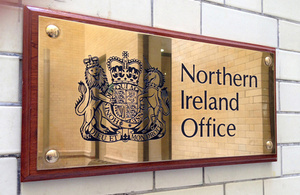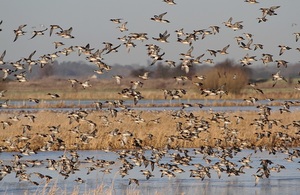The British Embassy in Oslo has invited UK nationals to information meetings across Norway and hosted several Facebook Q&A sessions to deliver the latest updates to UK nationals working and living in the country regarding the UK’s departure from the European Union.
We have gathered the most frequently asked questions from UK nationals and the updated answers from both the Embassy team and the Norwegian Immigration Directorate (UDI). This information is correct as of February 2021.
Residence rights, new residence permit and card
What link should I apply through on UDI.no?
Please read the UDI guidance carefully. Under each category, there is a list of requirements in order to apply through that specific link. If after reading that page and our FAQ below you still do not know, please contact UDI for advice.
How much does the application cost?
The application is free of charge for all UK nationals who were legally residing in Norway by the end of 2020 in scope of the EEA EFTA Separation Agreement. If you have incorrectly paid a fee please contact your local Police and request a refund. You will then need to reapply for the correct permit under Brexit regulations
What is the difference between the permit and the card?
The new permit is the legal basis allowing UK nationals to continue living in Norway as non-EU citizens. The card is the main official document to prove that legal basis. All non-EU citizens in Norway have this card. All UK nationals need to get a card. Other official residence documents such as your registration letter will still be valid until you receive the new residence card.
Who has to apply for the permit and who has to order the card?
UK nationals without a permanent permit (oppholdstillatelse/bosettingstillatelse) need to apply for the new permit and will automatically get a card as part of the process. UK nationals with a permanent permit (oppholdstillatelse/bosettingstillatelse) do not need to apply for a permit. They only need to order a card from 15 February 2021. Read more information on UDI’s website.
What is the difference between a permanent permit (oppholdstillatelse/bosettingstillatelse) and the permanent right to remain (varig oppholdsrett)?
The permanent permit is for all citizens (EU and non-EU). It used to be called a settlement permit and was in place for UK nationals before the EU system came into force in Norway. It grants extra rights to live and work in Norway indefinitely and extra protection against expulsion. The permanent right of residence is only available to EU citizens. EU citizens need to have lived in Norway for 5 years before being eligible to apply. It grants extra rights to live and work in Norway indefinitely and protection against expulsion.
I have a permanent permit (oppholdstillatelse/bosettingstillatelse). What do I have to do?
As stated on the UDI site you do not need to apply for a new permit, but you do need to order a residence card. It will be possible to order a card from 15 February 2021 on UDI.no. You will have until 31 December 2021 to do this. You will need to book an appointment with the Police for an ID check for the new card.
I have been in Norway for over 25 years, what do I have to do?
If you have previously been granted a permanent residence permit, you can still live in Norway and do not need to apply for a new permit. If you have a permanent residence permit, you must order a residence card. You can order the residence card from 15 February onwards, and must order it by 31 December 2021. Read more information on UDI’s website.
There are no available police appointments in my area, what should I do?
COVID-19 has reduced police capacity. In some areas, you will have to wait to get an appointment. Keep checking the UDI Police appointment system as new slots may open up soon. Do not worry, you have plenty of time to get your card. Please contact your local police station if you are concerned about the lack of appointments.
I have applied for Norwegian citizenship, but my application has not been processed yet, what should I do?
If you applied for dual citizenship in 2020 then: You can wait until you receive an answer to your application for citizenship. If the application is granted, you do not need to apply. If you are refused, you must apply for a new residence permit. If you have a permanent right of residence now, you must apply for a permanent residence permit.
If you applied for dual citizenship in 2021: If you have not received a response to your citizenship application by 31 August 2021 or your application has been refused, you must apply for the new residence permit. If you have a permanent right of residence, you must apply for a permanent residence permit.
See the Q&A pages on the UDI website.
If you are granted Norwegian citizenship, you do not need to get a permit for UK nationals.
Please read the UDI guidance carefully. Under each category, there is a list of requirements in order to apply through that specific link. If after reading that page and our FAQ below you still do not know, please contact UDI for advice.
I have a Bostedsattest (Residence certificate). Do I still need to get the new residence card?
Yes. The Bostedsattest is just a confirmation of your address in Norway. It is not an official document granting you residence rights.
If you have been granted a permanent residency permit, your residency will not be affected of any changes regarding family situation, job/income etc. When ordering a new card there will be no check of the terms of your permit.
Can I continue to reside over the 5 year period of the permit under the same conditions, i.e. to change employment, move from student to employee to self-employed (as per previous EU/EEA regs) in that period without applying for a new permit. What exactly are the requirements to ensure that we do not have irregular status?
If you meet the requirements for the new Brexit residence permit (you had a right to reside before 31 December 2020), you will retain your rights as they were under the EEA agreement. This means you can change your basis for staying in Norway, e.g. move from student to employee or person with own funds without applying for a new permit.
You will keep this right/permit as long as you do not stay more than 6 months outside Norway. Then your permit will be lost.
How many years do I have to wait before I can apply for a permanent residence permit?
After you have been granted a temporary residence permit, you can apply for a permanent permit after 3 years by the Norwegian regulations – if all other requirements are met. For instance, you must then pay a fee and complete mandatory tuition in the Norwegian language and social studies. If you are applying after 5 years you only need to document that you have had the right of residence for those years. If you came in august 2019 you can apply for a permanent residency in august 2024.
How will my spouse’s status be impacted? She is a non EEA, non UK citizen and she has requirements to extend her permit.
Under the Separation Agreement, you have the right to have close family members including your spouse live with you in Norway. Your wife can apply for a permit as a family member of a UK national in scope of the Separation Agreement. Please read more about this on UDI’s guidance page under the heading “Family member to a British citizen”
I left Norway to study. How long can I be absent from Norway before losing my residence status?
Normally the right to residence is lost upon 6 months stay outside Norway. However, exemptions are made for some groups, including students. As long as you were studying while living outside Norway, you can stay for up to 12 months, and still keep your right of residence. So if you returned to Norway within 12 months, you kept your right to live in Norway.
Please be informed you have a right to stay in Norway for a period up to 6 months looking for work in Norway. The period starts from the date you entered Norway.
If you are in scope of the EEA EFTA Separation Agreement, when applying for citizenship the requirements will be based on your status as a previous EU citizen.
Travel
When we get a permanent residence card for Norway, does that give us any additional rights regarding travel in the EU/Nordic countries, or will we have identical status to UK resident UK citizens?
From 1 January 2021, all UK nationals became non-EU citizens. As the status changed, rights to stay in Schengen area countries also changed. UK nationals can now travel to other Schengen area countries for up to 90 days in any 180-day period without a visa for purposes such as tourism.
To stay for longer than 90 days in any 180-day period, to work or study, or for business travel, you must meet the entry requirements set out by the country you are travelling to. This could mean applying for a visa or work permit.
This is the same requirement for both UK nationals in Norway and those residing in the UK.
The new residence card proves that you are legally resident in Norway and are therefore not limited to 90 in 180 days there. It also means that the time you have spent residing in Norway will not count towards your overall time in Schengen.
Please do read more about travel in the Schengen area on our Living in Norway guide.
I have a Norwegian-issued EHIC. Can I still use this when I am on holiday in the UK or the EU?
If you are in scope of the EEA EFTA Separation Agreement you are entitled to continue using your card in the UK and the EU. You can continue to renew this on Helsenorge’s website
I am currently visiting Norway. How long can I stay?
You are subject to the 90 in 180 day Schengen limit if you are normally resident in the UK. Days you have stayed in Schengen before 1 Jan 2021 do not count towards this limit.
Tax
Does anything change for tax?
The UK has a double taxation agreement with Norway to ensure you do not pay tax on the same income in both countries. Existing double taxation arrangements for UK nationals living in Norway have not changed. Please check the Norwegian Tax Office site for more information about tax payments in Norway or contact them.
Key links

